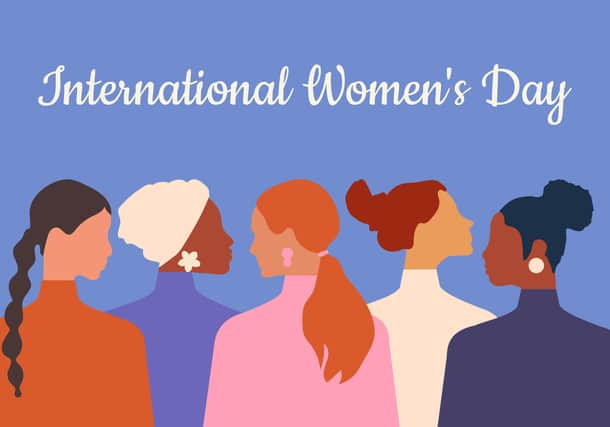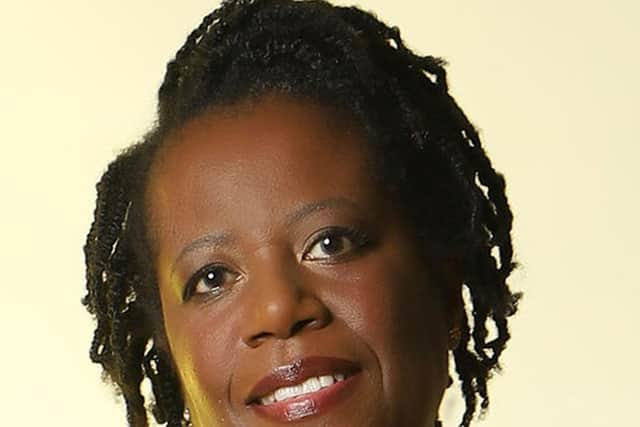Northern Lights: As We Approach International Women’s Day 2024, What is the Current State of Gender Equity in the UK?


In 1908, the seeds for this movement were sown when 15,000 women marched through New York City, protesting about reduced working hours, poor wages, and the right to vote. The following year, the Socialist Party of America marked the inception of National Woman's Day. Over the years we have seen the movement grow globally from celebrating just one day to being honoured for the whole of March.
Whilst we have seen significant improvements towards gender equity over the years, there is still a way to go. Whilst the gender pay gap still exists, over the past decade there has been an approximate 25% decline among full-time employees, reaching 7.7% in April 2023. Significant disparities persist between employees aged 40 and over and those under 40 and there is a notable difference between higher and lower earners.
Advertisement
Hide AdAdvertisement
Hide AdIn 2019, the government’s policy document 'Gender equality at every stage: A roadmap for change’ outlined eight issues related to gender inequality that the government committed to addressing. Such as challenging attitudes toward gender and tackling the gender pay gap. The commitments in the roadmap were to be integrated into departments' single departmental plans for 2020/21 as deemed necessary. Additionally, the government pledged to present an annual progress report to Parliament, accompanied by yearly updates on the Gender Equality Monitor.


This monitoring tool was going to consolidate various indicators into a single framework, tracking gender equality across economic participation and progression; attitudes and leadership; education and skills; crime and justice; and health and wellbeing.
In 2022, Baroness Gale, put a question to Parliament asking the government, to provide an annual progress report, where the reports they had already made could be found; and when they planned to publish their next report.
The response from Baroness Stedman-Scott referred to the Minister for Women and Equalities having set out a new approach. An action plan had been set out for addressing inequality, particularly in terms of gender, aligning with the broader scope of the Equality Hub.
Advertisement
Hide AdAdvertisement
Hide AdThe progress update of the Inclusive Britain Report in 2023 is not clear what is being done specifically concerning gender, but we have seen some improvements.
The Office for National Statistics reports that the gender pay gap has decreased across all major occupational groups between 2022 and 2023. However, although it has decreased, there is still a gap. Last year an analysis of data from Companies House showed that the proportion of women on the boards of all FTSE companies had risen over the past year from 36% to 40%. But two-fifths of FTSE100 companies did not have a woman in one of their top four executive roles.
Progress has been made, but more still needs to be done. Particularly from an intersectional perspective. Ethnic minority women continue to face several disparities.
A study reported in BMC Public Health in 2023 stated that ‘Persistent, high rates of maternal mortality amongst ethnic minorities is one of the UK’s starkest examples of racial disparity. With greater risks of adverse outcomes during maternity care, ethnic minority women are subjected to embedded, structural, and systemic discrimination throughout the healthcare service.’
Advertisement
Hide AdAdvertisement
Hide AdBlack women continue to be disadvantaged in many aspects of society, not only having to contend with gender bias but racial bias as well. Black women in the UK are more likely than white women to be poor; have higher rates of illness and mortality related to pregnancy and childhood; and face many other disadvantages.
That is why the Black Northern Women's International Women's Day Conference was started in 2019 in Sheffield. Black women in the North of England are less likely to see women who look like them in senior positions and other positions of influence in the cities where they live. In some Northern cities, because there are fewer of them, Black women can often feel marginalised and isolated.
The conference brings together Black women (and their allies and supporters) from the north of England for a day that empowers and inspires them to navigate the gender and racial barriers (and personal ones) that they face. As well as developing support networks with other women who have a shared, lived experience. The conference grows each year with women attending from more than 22 different cities.
This year’s conference takes place on the 9th of March at the Cutlers Hall and for the first time is open to men. The keynote speaker is Paul Carrick Brunson, host of the TV shows Married at First Sight, Celebs Go Dating, and the relationship expert on ITV’s Lorraine Kelly Show.
Advertisement
Hide AdAdvertisement
Hide AdHe is also a serial entrepreneur. The conference is sponsored by Business Sheffield and Sheffield Business Improvement District, and it is supported by NatWest. Further details can be found at https://reclaimingyourpower.eventbrite.co.uk